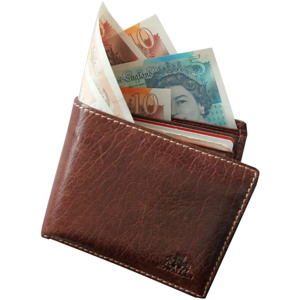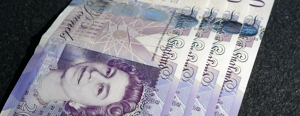Tavex uses cookies to ensure website functionality and improve your user experience. Collecting data from cookies helps us provide the best experience for you, keeps your account secure and allows us to personalise advert content. You can find out more in our cookie policy.
Please select what cookies you allow us to use
Cookies are small files of letters and digits downloaded and saved on your computer or another device (for instance, a mobile phone, a tablet) and saved in your browser while you visit a website. They can be used to track the pages you visit on the website, save the information you enter or remember your preferences such as language settings as long as you’re browsing the website.
| Cookie name | Cookie description | Cookie duration |
|---|---|---|
| tavex_cookie_consent | Stores cookie consent options selected | 60 weeks |
| tavex_customer | Tavex customer ID | 30 days |
| wp-wpml_current_language | Stores selected language | 1 day |
| AWSALB | AWS ALB sticky session cookie | 6 days |
| AWSALBCORS | AWS ALB sticky session cookie | 6 days |
| NO_CACHE | Used to disable page caching | 1 day |
| PHPSESSID | Identifier for PHP session | Session |
| latest_news | Helps to keep notifications relevant by storing the latest news shown | 29 days |
| latest_news_flash | Helps to keep notifications relevant by storing the latest news shown | 29 days |
| tavex_recently_viewed_products | List of recently viewed products | 1 day |
| tavex_compare_amount | Number of items in product comparison view | 1 day |
| Cookie name | Cookie description | Cookie duration |
|---|---|---|
| chart-widget-tab-*-*-* | Remembers last chart options (i.e currency, time period, etc) | 29 days |
| archive_layout | Stores selected product layout on category pages | 1 day |
| Cookie name | Cookie description | Cookie duration |
|---|---|---|
| cartstack.com-* | Used for tracking abandoned shopping carts | 1 year |
| _omappvp | Used by OptinMonster for determining new vs. returning visitors. Expires in 11 years | 11 years |
| _omappvs | Used by OptinMonster for determining when a new visitor becomes a returning visitor | Session |
| om* | Used by OptinMonster to track interactions with campaigns | Persistent |
| Cookie name | Cookie description | Cookie duration |
|---|---|---|
| _ga | Used to distinguish users | 2 years |
| _gid | Used to distinguish users | 24 hours |
| _ga_* | Used to persist session state | 2 years |
| _gac_* | Contains campaign related information | 90 days |
| _gat_gtag_* | Used to throttle request rate | 1 minute |
| _fbc | Facebook advertisement cookie | 2 years |
| _fbp | Facebook cookie for distinguishing unique users | 2 years |
In Europe, a Significant Step Has Been Taken Towards a Cashless Society

This step towards a cashless society in Europe has led to concerns about the restriction of personal freedoms.
Last week, the member states of the European Union reached an agreement to introduce a directive that would prohibit all cash payments exceeding 10,000 euros. While this move is aimed at combatting money laundering, it also signifies a move towards a cashless society and the potential limitation of important individual freedoms.
European Union Financial Services Commissioner Mairead McGuinness expressed the significance of these agreements in the fight against illicit financial activities, stating, “The agreements reached this week are an important milestone in the fight against black money,” after the meeting in Strasbourg.
Before this directive can take effect, it requires approval from both the European Parliament and the member states. The enforcement and oversight of these new rules will be the responsibility of individual member states, with coordination provided by the European Anti-Money Laundering Authority.
It’s crucial to grasp the essence of this agreement. This decision entails a curtailment of vital personal freedoms, ostensibly in the name of enhanced security.
The Balancing Act Between Freedom and Security

Over the past decade, a growing number of individuals have advocated for reducing or eliminating cash usage. During this time, the use of cash in Western countries has significantly declined. While the European Union hasn’t explicitly stated a goal of completely eradicating cash, this recent decision clearly signifies a move in that direction. Such transitions are typically gradual, as abrupt restrictions on freedoms can be challenging for the public to accept.
Cash represents a form of financial freedom and autonomy in the long term. Restricting its use also restricts personal freedom and the freedom of movement. This brings us to the age-old debate of freedom versus security. We sometimes sacrifice our liberties in pursuit of heightened security, which aims to reduce criminal activities.
This situation is analogous to placing surveillance cameras in public spaces, where security increases but privacy decreases. Of course, the effectiveness of this security increase depends on ethical individuals overseeing the surveillance and the absence of tyrants who might exploit this power to manipulate and control the populace. In the worst-case scenario, we lose both freedom and security.
As Benjamin Franklin wisely noted,
Those who give up their fundamental liberties to obtain temporary security deserve neither liberty nor security
This quote prompts us to reflect on whether we want banks and potentially the government to monitor and control all our financial transactions. Most individuals would likely object to such intrusive surveillance. To those who argue, “If you have nothing to hide, why can’t we monitor your transactions?” one might counter by asking if they’d accept government surveillance cameras in their homes “just in case.” History provides numerous examples of governments misusing collected data and the power it affords them over their citizens.
Recent Examples Hit Close to Home

Recent examples of such misuse are not limited to distant totalitarian regimes of the 20th century. In 2021, Canada’s ostensibly democratic government froze the bank accounts of hundreds of protesting truck drivers, demonstrating that a lack of access to bank accounts essentially equates to financial imprisonment. People could buy groceries but couldn’t pay for essential services.
Canada is often regarded as part of the “free world.” Yet, when Prime Minister Justin Trudeau decided to wield people’s bank accounts against them for exercising their civil liberties, it raised concerns. The elimination of cash could grant governments unparalleled control in such situations.
In our technology-driven financial system, the Western world has yet to experience full-scale financial control. In addition to the push to eliminate cash, the rise of central bank digital currencies (CBDCs) is another factor that could grant central banks total control over individuals’ finances.
Preserving the Importance of Cash

There is an argument that person should have the right to engage in transactions outside the banking system, using cash. They should also have the right to make transactions that leave no digital trace in the financial market. The fact that a small minority may misuse this right for illegal activities should not justify sacrificing the financial freedom and privacy of everyone.
The loss of cash makes us entirely dependent on the government and and financial institutions
It is naive to assume that so-called democratic governments in Western countries will always act benevolently. Furthermore, what happens if there is a power outage or loss of internet connectivity? Digital money leaves us entirely reliant on electricity and the internet inhibiting our safety net. Everyone should have the ability to decide the extent of this dependence based on their values and needs to ensure financial stability.
Cash symbolises freedom, privacy, and autonomy. It allows individuals to transact without involving a third party and leaves no trace of a specific person, unlike a credit card. To prevent the drift towards a surveillance society, the importance of preserving cash cannot be understated.

















